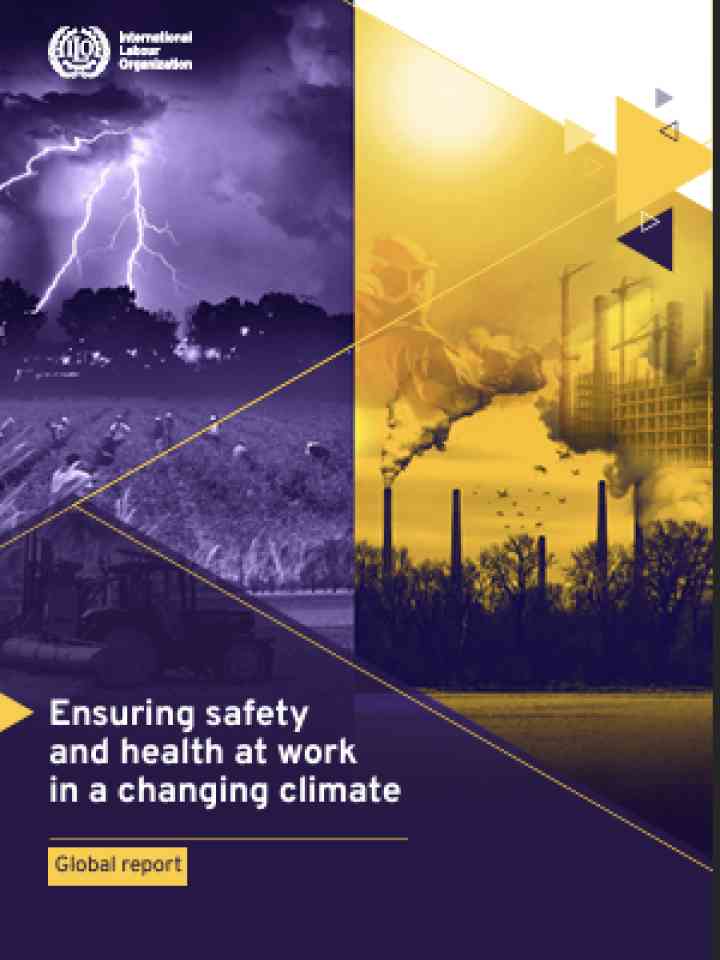Ensuring safety and health at work in a changing climate
This report presents critical evidence related to six key impacts of climate change on OSH, which were chosen for their severity and the magnitude of their effects on workers: excessive heat, solar ultraviolet (UV) radiation, extreme weather events, workplace air pollution, vector-borne diseases, and agrochemicals. Climate change is already having serious impacts on the safety and health of workers in all regions of the world. Workers are among those most exposed to climate change hazards yet frequently have no choice but to continue working, even if conditions are dangerous. Global occupational safety and health (OSH) protections have struggled to keep up with the evolving risks from climate change, resulting in worker mortality and morbidity.
Key takeaways from the report include:
- Billions of workers are exposed to hazards exacerbated by climate change;
- Workers across different sectors are exposed to these hazards but some workers, such as agricultural workers and other outdoor workers carrying out heavy labour in hot climates, may be particularly at risk;
- Strong evidence demonstrates that numerous health conditions in workers have been linked to climate change, including cancer, cardiovascular disease, respiratory illnesses, kidney dysfunction and mental health conditions, among many others;
- As climate change hazards evolve and intensify, it will be necessary to re-evaluate existing legislation or create new regulations and guidance.
Explore further
